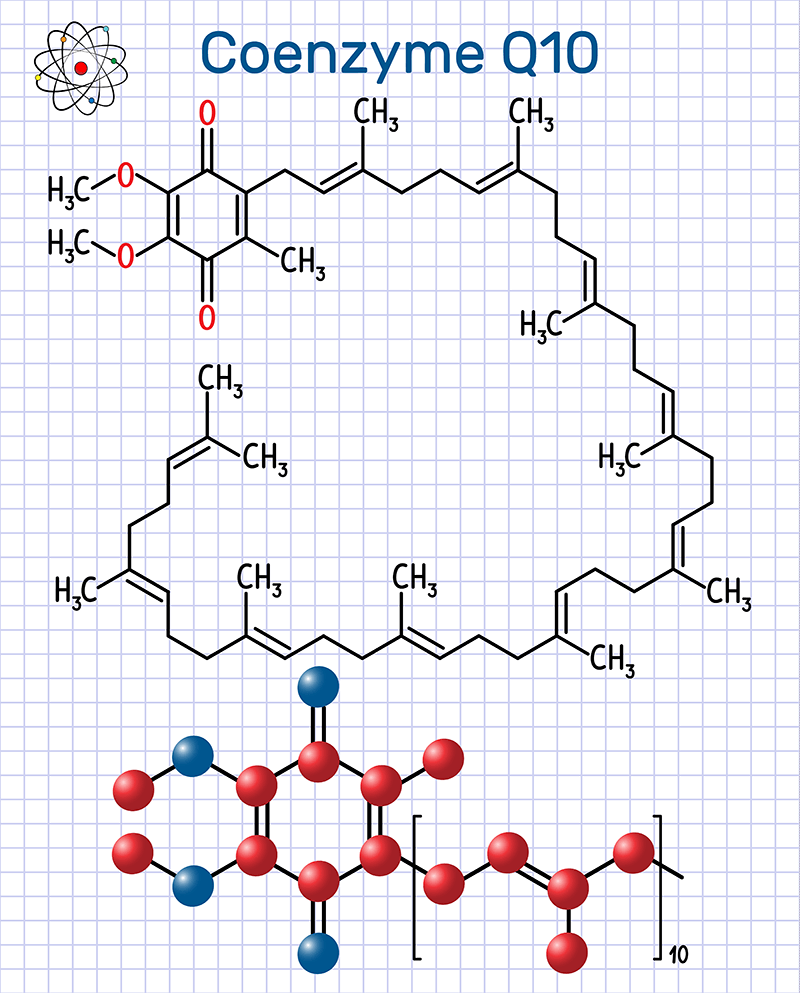- +033 2572 7171
- info@dhanvantary.com

4.5 Rating | 4500 Review

4.5 Rating | 4500 Review
Coenzyme Q10 serves as an essential catalyst, functioning as the spark plug for the transformation of food into energy within cells. This crucial nutrient is present in every plant and animal cell and acts as a potent antioxidant, thereby preventing cellular damage throughout the body. It plays a significant role in enhancing energy production and is responsible for releasing approximately 95% of the energy necessary for life.

A deficiency in Coenzyme Q10 can lead to fatigue, hypertension, and various other health complications. Additionally, Coenzyme Q10 is found in the herb Arjuna, which is known for its cardioprotective properties.
The highest concentrations of coenzyme Q10 are found in pork heart, beef heart, and reindeer meat. Other meat products rich in coenzyme Q10 include beef, pork, beef liver, and pork liver.
Sesame oil, soybean oil, corn oil, and cottonseed oil are notable sources of coenzyme Q10.
Cuttlefish, sardines, mackerel, yellowtail, tuna, Pollock, and herring provide moderate to high levels of coenzyme Q10.
Peanuts, soybeans, sesame seeds, pistachios, walnuts, hazelnuts, and azuki beans are good sources of coenzyme Q10.
Broccoli, spinach, sweet potatoes, sweet peppers, garlic, peas, carrots, and cauliflower also contain significant amounts of coenzyme Q10.
Coenzyme Q10 plays a crucial role in energy production. A deficiency in coenzyme Q10 may lead to severe physical fatigue, muscle or joint pain, headaches, migraines, and mental exhaustion.
A lack of coenzyme Q10 can result in weakened immunity, increasing vulnerability to infections.
Decreased levels of coenzyme Q10 are associated with elevated cholesterol and blood pressure, heightening the risk of heart-related issues.
Additionally, low levels of coenzyme Q10 may contribute to neurodegenerative and neuromuscular disorders.
No serious side effects have been identified from the consumption of coenzyme Q10. However, some individuals may experience rashes, nausea, upper abdominal discomfort, and mild insomnia. Other potential symptoms include heartburn, headaches, fatigue, and dizziness.
